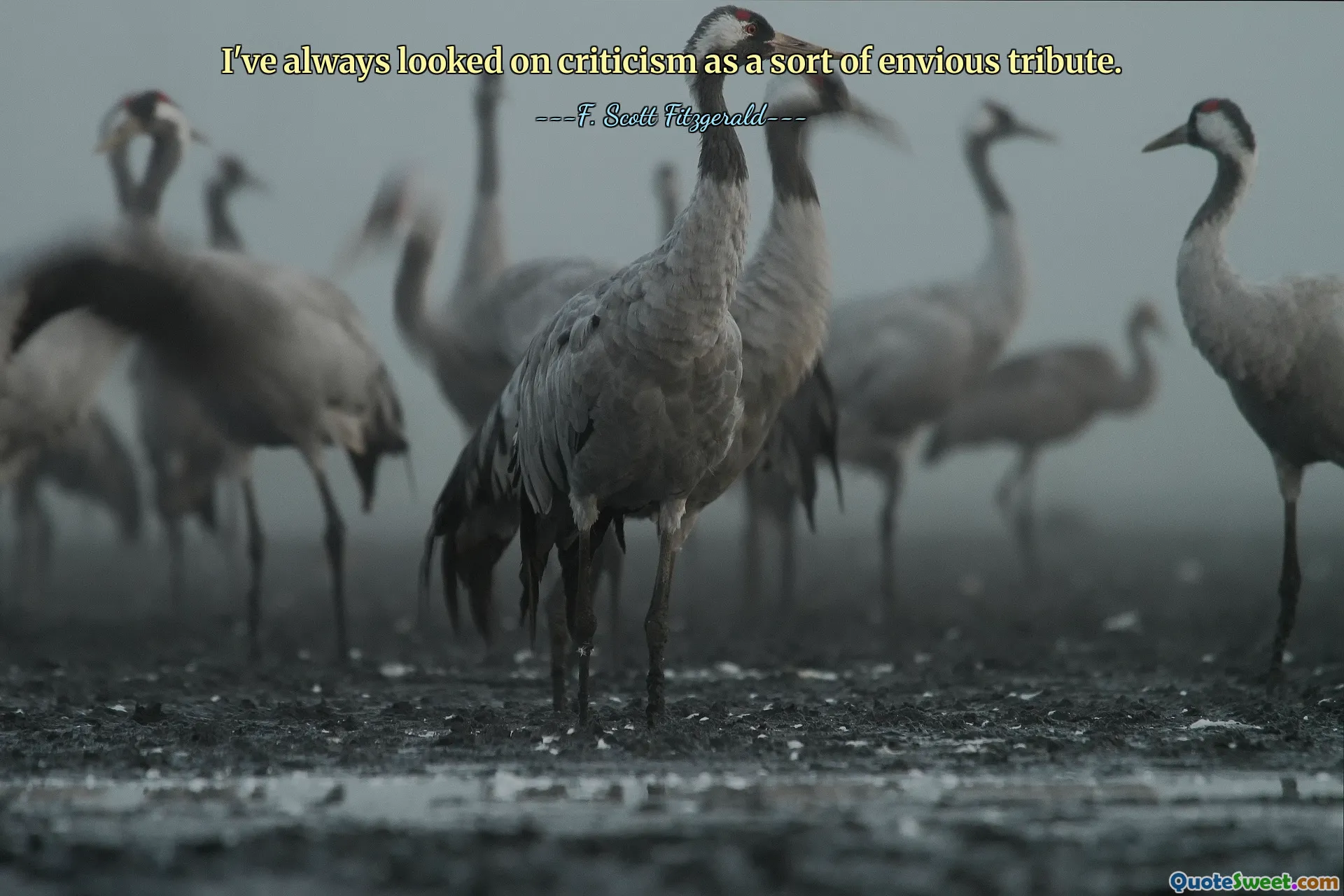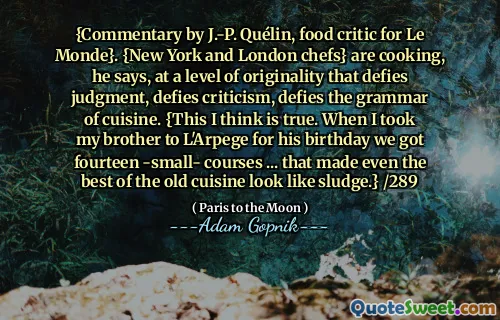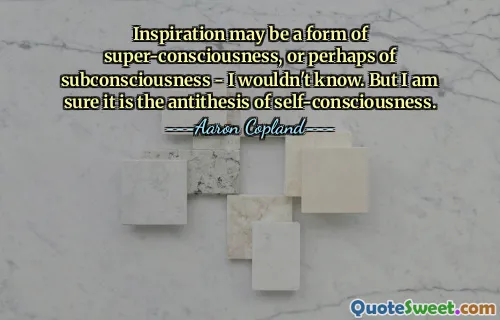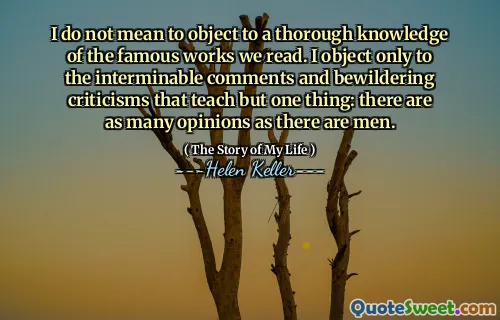
I've always looked on criticism as a sort of envious tribute.
This quote by F. Scott Fitzgerald offers a nuanced perspective on criticism, viewing it not merely as negative feedback but as a reflection of underlying envy. When individuals criticize others, it often stems from their own insecurities or desires—they project their shortcomings outwardly. Recognizing criticism as a form of envious tribute shifts the way we interpret such comments; instead of dismissing them outright, we can see them as indications of others' awareness of our strengths or achievements. This mindset encourages resilience and self-awareness, empowering us to separate constructive critique from petty envy. It invites a broader understanding of social dynamics, where jealousy can act as a mirror revealing the critic's own unmet aspirations. Embracing criticism with this perspective can diminish its sting, transforming potential negativity into an opportunity for growth or self-reflection. Furthermore, this approach fosters empathy; understanding that critics may be driven by their own internal struggles allows us to detach from defensiveness and maintain focus on our personal journeys.
In a broader context, the quote underscores the complex nature of human interactions. It suggests that even seemingly disparaging remarks carry within them a hint of admiration or acknowledgment of worth that the critic struggles to attain. This outlook encourages cultivating confidence and viewing criticism as a complement, albeit veiled. It emphasizes the importance of inner strength in navigating external judgments and highlights the value of self-assurance in the face of judgment. Overall, Fitzgerald's insight invites us to reinterpret criticism not simply as an attack but as a subtle acknowledgment of our standing that the critic wishes to emulate, thus transforming how we perceive and respond to feedback.
Understanding this dynamic can lead to greater emotional resilience and a more compassionate view of human motives, ultimately enriching personal growth and interpersonal relations.








